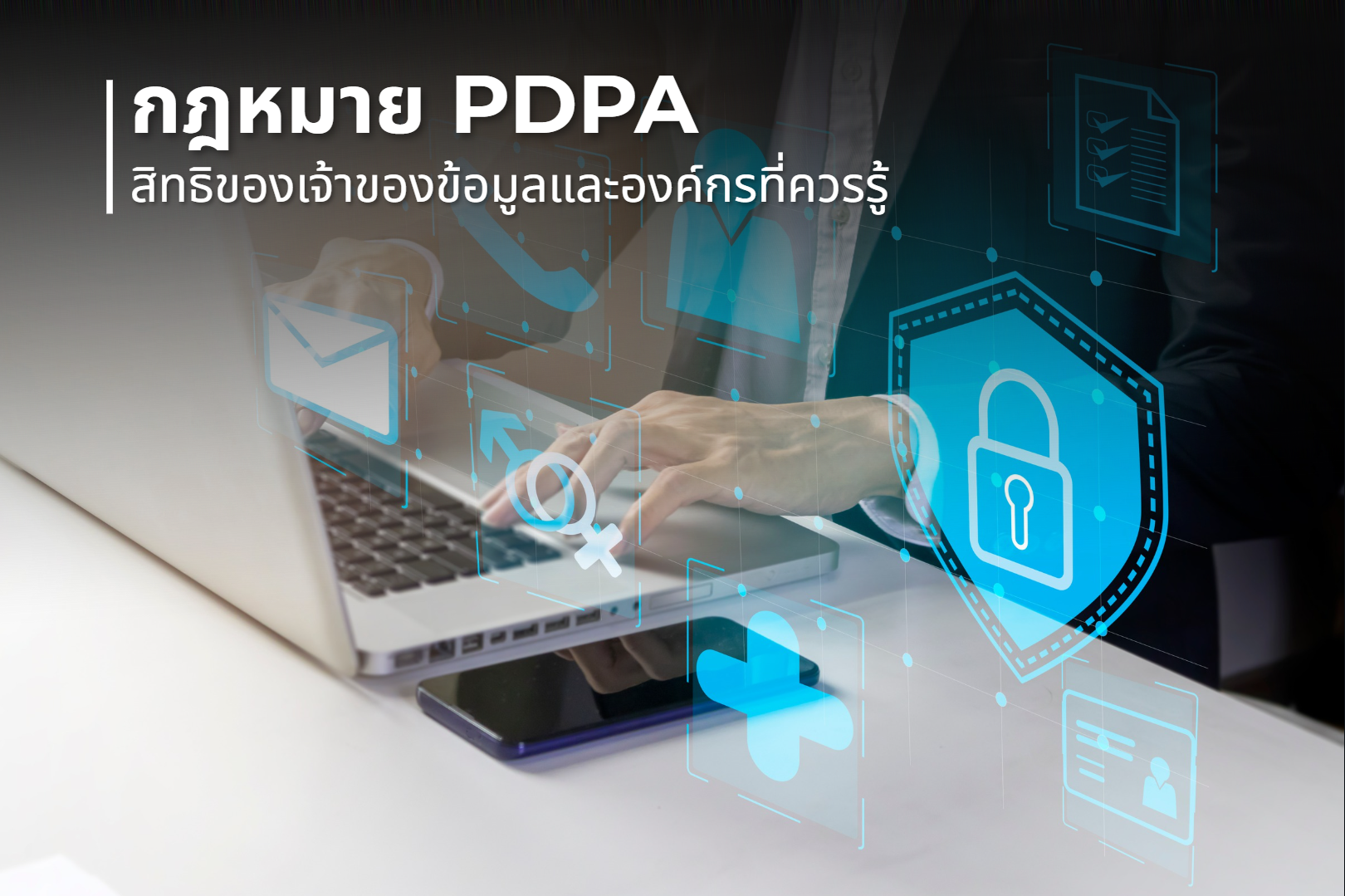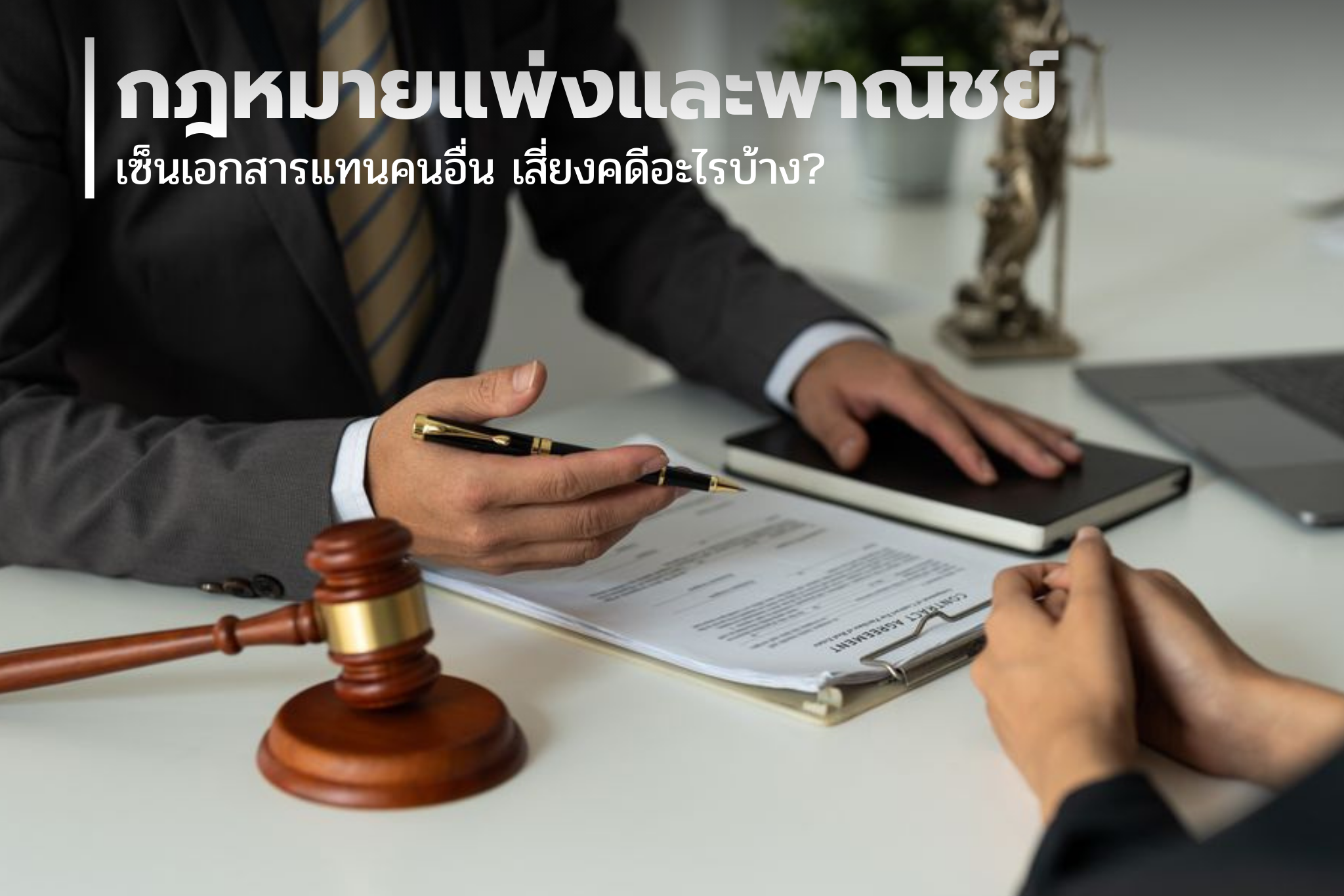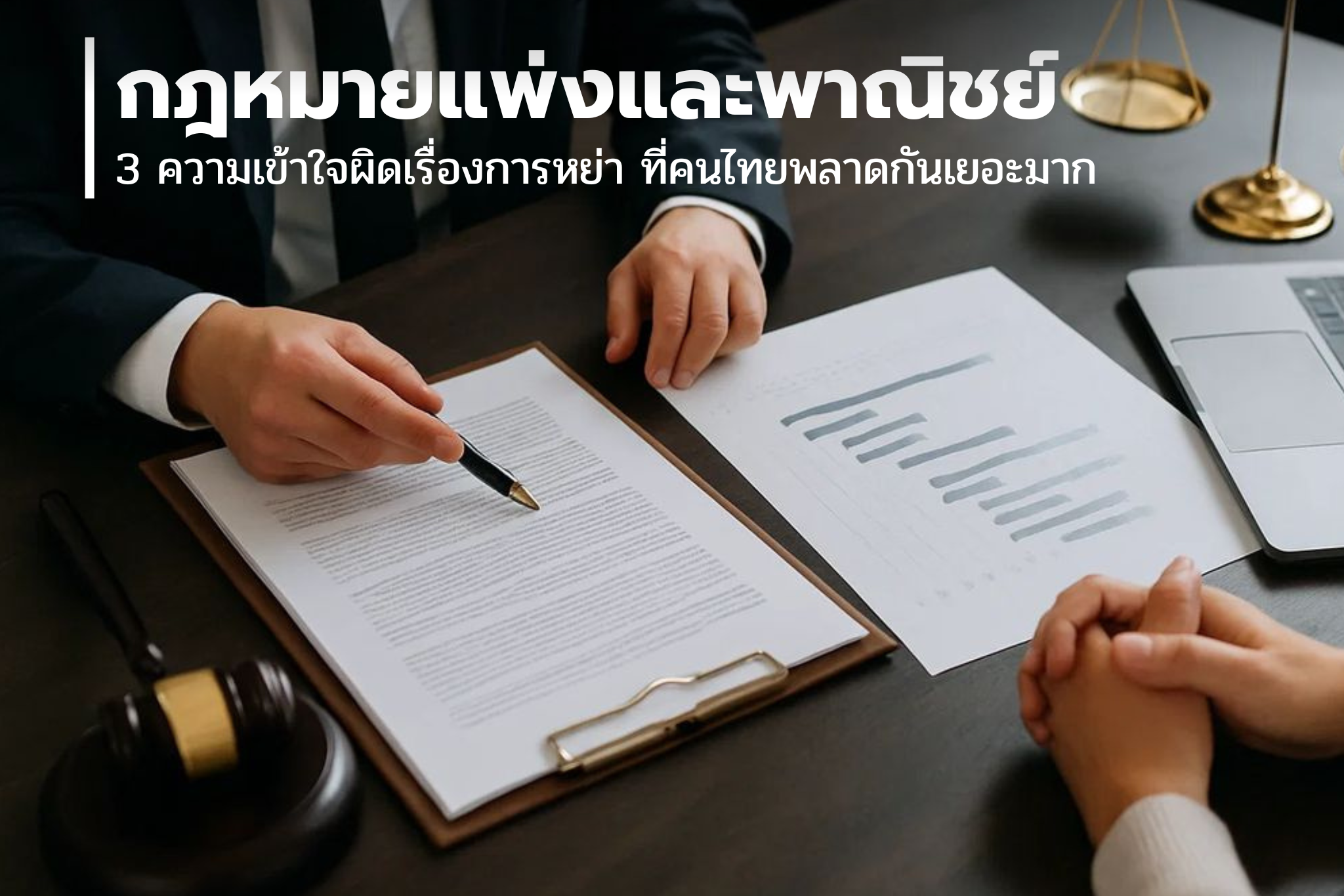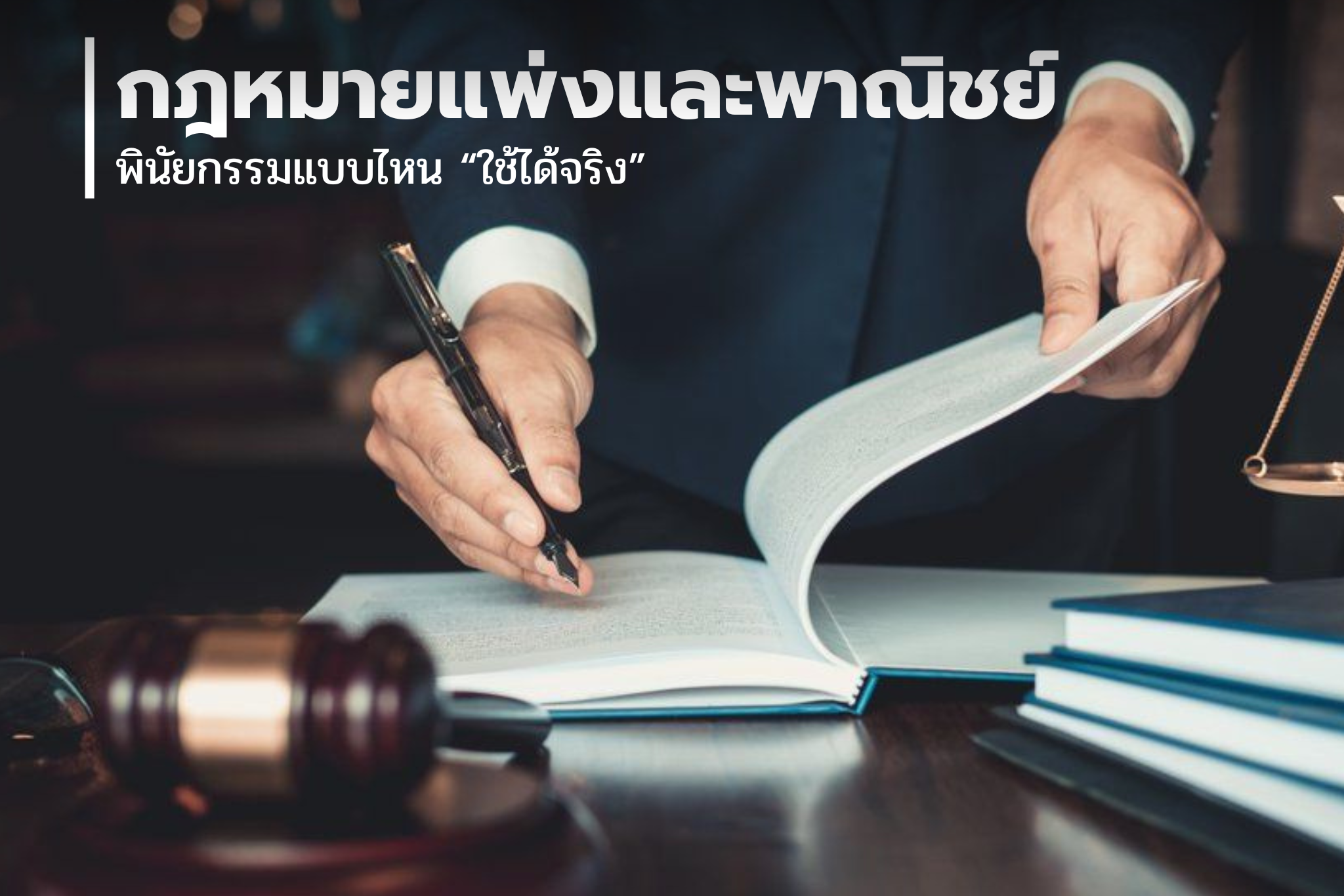รู้สิทธิของคุณ! PDPA กับข้อมูลส่วนตัวที่องค์กรต้องไม่ละเมิด
ปัจจุบัน “ข้อมูลส่วนบุคคล” กลายเป็นทรัพยากรที่มีมูลค่าสูง ไม่ว่าจะเป็นข้อมูลชื่อ-นามสกุล เบอร์โทร อีเมล ไปจนถึงพฤติกรรมการใช้งานออนไลน์ ล้วนสามารถนำไปใช้ทางธุรกิจหรือก่อให้เกิดความเสียหายหากถูกละเมิดได้ ประเทศไทยจึงได้ออก พระราชบัญญัติคุ้มครองข้อมูลส่วนบุคคล พ.ศ. 2562 (PDPA) ขึ้นมาเพื่อคุ้มครองสิทธิของเจ้าของข้อมูล และกำหนดหน้าที่ขององค์กรหรือธุรกิจที่เก็บ ใช้ และเปิดเผยข้อมูลส่วนบุคคล
สิทธิสำคัญของเจ้าของข้อมูลตาม PDPA
- สิทธิในการรับรู้ (Right to be Informed)
เจ้าของข้อมูลมีสิทธิที่จะรับรู้ว่านำข้อมูลไปใช้เพื่อวัตถุประสงค์ใด ใครเป็นผู้ควบคุมข้อมูล จะเก็บไว้นานเท่าไร - สิทธิในการเข้าถึงข้อมูล (Right of Access)
สามารถขอสำเนาข้อมูลส่วนบุคคลของตนเองที่องค์กรเก็บไว้ รวมถึงตรวจสอบการใช้งานข้อมูลได้ - สิทธิในการแก้ไขข้อมูล (Right to Rectification)
หากข้อมูลไม่ถูกต้อง ไม่ครบถ้วน เจ้าของข้อมูลสามารถร้องขอให้แก้ไขได้ - สิทธิในการลบหรือทำลายข้อมูล (Right to Erasure/Right to be Forgotten)
มีสิทธิขอให้ลบหรือทำลายข้อมูลส่วนบุคคลในบางกรณี เช่น หมดความจำเป็นต้องใช้ข้อมูล หรือถอนความยินยอม - สิทธิในการคัดค้านการประมวลผลข้อมูล (Right to Object)
เจ้าของข้อมูลสามารถคัดค้านไม่ให้องค์กรใช้ข้อมูลในบางวัตถุประสงค์ เช่น การทำการตลาดแบบตรง (Direct Marketing) - สิทธิในการจำกัดการใช้ข้อมูล (Right to Restriction of Processing)
สามารถขอให้หยุดใช้ข้อมูลชั่วคราว เช่น กำลังอยู่ระหว่างตรวจสอบความถูกต้องของข้อมูล - สิทธิในการโอนย้ายข้อมูล (Right to Data Portability)
เจ้าของข้อมูลสามารถขอรับข้อมูลส่วนบุคคลในรูปแบบที่อ่านได้และโอนไปยังผู้ให้บริการรายอื่นได้ - สิทธิในการถอนความยินยอม (Right to Withdraw Consent)
หากเคยให้ความยินยอม เจ้าของข้อมูลสามารถถอนความยินยอมเมื่อใดก็ได้
สิ่งที่ธุรกิจ/องค์กรควรระวังภายใต้กฎหมาย PDPA
- ต้องขอ ความยินยอม (Consent) จากเจ้าของข้อมูลอย่างชัดเจน ก่อนเก็บ ใช้ หรือเปิดเผยข้อมูล
- ต้องจัดทำ นโยบายความเป็นส่วนตัว (Privacy Policy) ที่โปร่งใส เข้าใจง่าย และสื่อสารให้เจ้าของข้อมูลทราบ
- ต้องกำหนดกระบวนการจัดเก็บ ใช้ และปกป้องข้อมูลให้ปลอดภัย เพื่อป้องกันการรั่วไหลหรือถูกนำไปใช้ในทางที่ผิด
- หากละเมิดสิทธิหรือใช้ข้อมูลโดยไม่ได้รับอนุญาต อาจถูกลงโทษทั้งทางแพ่งและอาญา รวมถึงค่าปรับสูงถึง 5 ล้านบาท
หากท่านกำลังเผชิญปัญหาการละเมิดข้อมูลส่วนบุคคล หรือมีข้อสงสัยเกี่ยวกับกฎหมาย PDPA ทีมทนายความอัลฟ่า (Alpha Lawyers) พร้อมให้คำปรึกษาและดำเนินการเพื่อคุ้มครองสิทธิของท่านตามกฎหมาย
โทร. 091-724 6196 | ไลน์ : @ALPHALAWYERS
อีเมลล์ : alphalawyers1@gmail.com
เว็บไซต์ : www.alphalawyerskorat.com
PDPA Law: Data Subject Rights and What Organizations Should Know
Know Your Rights! PDPA and Your Personal Data That Organizations Must Not Violate
Nowadays, personal data has become a highly valuable resource. Whether it is a person’s name, surname, phone number, email, or even online behavior, such data can be used for business purposes or may cause serious damage if misused or violated.
To address this, Thailand enacted the Personal Data Protection Act B.E. 2562 (2019) (PDPA) to safeguard the rights of data subjects and to establish the duties of organizations or businesses that collect, use, and disclose personal data.
Key Rights of Data Subjects under the PDPA
- Right to be Informed
Data subjects have the right to know for what purpose their data is collected, who controls the data, and how long it will be retained. - Right of Access
Data subjects may request a copy of their personal data held by an organization, as well as review how their data is being used. - Right to Rectification
If the data is inaccurate or incomplete, data subjects may request corrections. - Right to Erasure / Right to be Forgotten
Data subjects may request deletion or destruction of their personal data in certain cases, such as when it is no longer necessary to retain the data or when consent is withdrawn. - Right to Object
Data subjects can object to the processing of their personal data for specific purposes, such as direct marketing. - Right to Restriction of Processing
Data subjects can request a temporary halt to data usage, for example, during verification of data accuracy. - Right to Data Portability
Data subjects may request their personal data in a readable format and transfer it to another service provider. - Right to Withdraw Consent
If consent has previously been given, data subjects may withdraw it at any time.
What Businesses and Organizations Must Be Aware Of under the PDPA
- Must obtain explicit consent from data subjects before collecting, using, or disclosing personal data.
- Must establish a Privacy Policy that is transparent, easy to understand, and clearly communicated to data subjects.
- Must implement processes to securely collect, use, and protect personal data to prevent leaks or misuse.
- Violations of data subject rights or unauthorized use of personal data may result in both civil and criminal penalties, including fines of up to 5 million baht.
If you are facing issues related to the violation of your personal data, or if you have any concerns regarding the PDPA, Alpha Lawyers is ready to provide legal consultation and take action to protect your rights in accordance with the law.
Phone: +66 91 724 6196
Email: alphalawyers1@gmail.com
Line ID: @ALPHALAWYERS
Website: www.alphalawyerskorat.com







